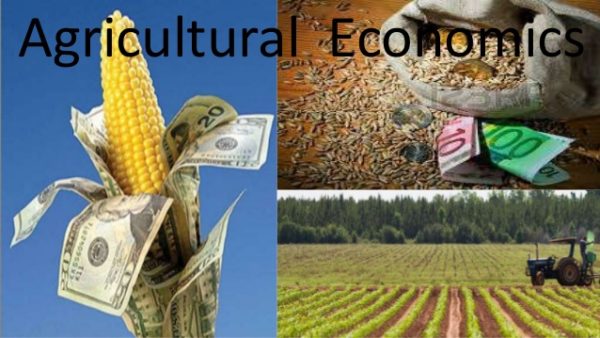For fifty years, I have been wondering what is the difference between the departments of agricultural and resource economy (ARE) and ECON? Having been thinking about this for over forty years, I will tell you how I came up with an answer. I started my professional life as a computer programmer and studied economics and statistics in Israel. Eithan Hochman and Uri Regev, two of my teachers, encouraged me to approach Berkeley Ag Econ. “It has the same program as Econ, it offers better support, and people are great. The department will let you do whatever you want, and Berkeley is the jewel of California – the Land of Promise. ”
At Berkeley, I kept wondering. Professor Andy Schmitz argued that ag econ is econ, with some emphasis on agriculture. He has supported the publication of comprehensive journals in Econ journals and the timely writing of papers on agricultural issues. The chairman of my department, Jim Boles, knew that we were receiving money from the agricultural experiment station to do work relevant to agriculture, and he appointed Regev and Hochman (as visiting faculty) to work on the experiment station project. I worked with Hochman to study the economics of animal waste, and my experience in computers has helped us write a number of papers for both farmers and economists. Regev has worked on impact articles on biological pest control. At that time, the department hired excellent people in the economy of agriculture, and Alain de Janvry led our popular economic development program. However, the agricultural economy was considered a minor area of research and few of us attended the meeting of the Agricultural Economic Association. Then Gordon Rausser arrived and became our department chair.
Gordon realized that we could not stand as the second best economic department in Berkeley, and instead challenged us to become the best AER department in the country (we overcame the challenge). Gordon instructed me to teach Agricultural Policy and he supported me a lot while I was educated on this subject. He provided resources for good travel and research assistants, but insisted that I would not spend my research funds on an interesting issue, “factors that affect the prices of basketball games.” I started going to the Ag Econ meetings and discovered a new universe parallel to the mainstream. the economic world. More emphasis has been placed in the real world on the adoption of technology, the supply chain, future markets and political economy. While the analysis may not be as elegant as it can be seen in the mainstream economy, there have been many conceptual innovations and relevances. I realized that this was my discipline.
What are the differences?
These are closely allied disciplines with a symbiotic relationship, but ag econ is not a pure subset of economics. Economics aims to understand behavior and explain prices, resource allocation, production patterns, macroeconomics and international trade. Over time, its coverage has increased to explain almost all human choices, including marriage and family interaction and political outcomes. When I was in college, I learned about the laws of supply and demand, as well as Say’s law (“Supply creates its own demand”), and my professors emphasized the importance of identifying general patterns of behavior through rigorous analysis. Economics aspires to be a “basic science,” like physics, in order to explain major models, but economics itself has evolved. In the early days, it was based on logic, and then its content was enriched by developments in mathematics, statistics, data science, and other social sciences. Like physics, economics generates principles and techniques that can be applied to improve human lives, and economics has given rise to many applied disciplines that address significant practical aspects of life.
The agricultural economy emerged as the union between the farm economy and farm management and evolved into agricultural schools. Over time, the field has expanded to include the entire food supply chain, natural resources and development, but the practical essence has remained. AER departments are part of vocational schools that seek solutions to problems of production, management, use of food, natural resources and the environment. Agriculture and resource economics should complement disciplines such as plant biology, agronomy, applied environmental science and nutrition. These disciplines tend to develop technologies and practices to meet major challenges (increasing productivity, reducing pollution, etc.). AER should elucidate how these technologies benefit

